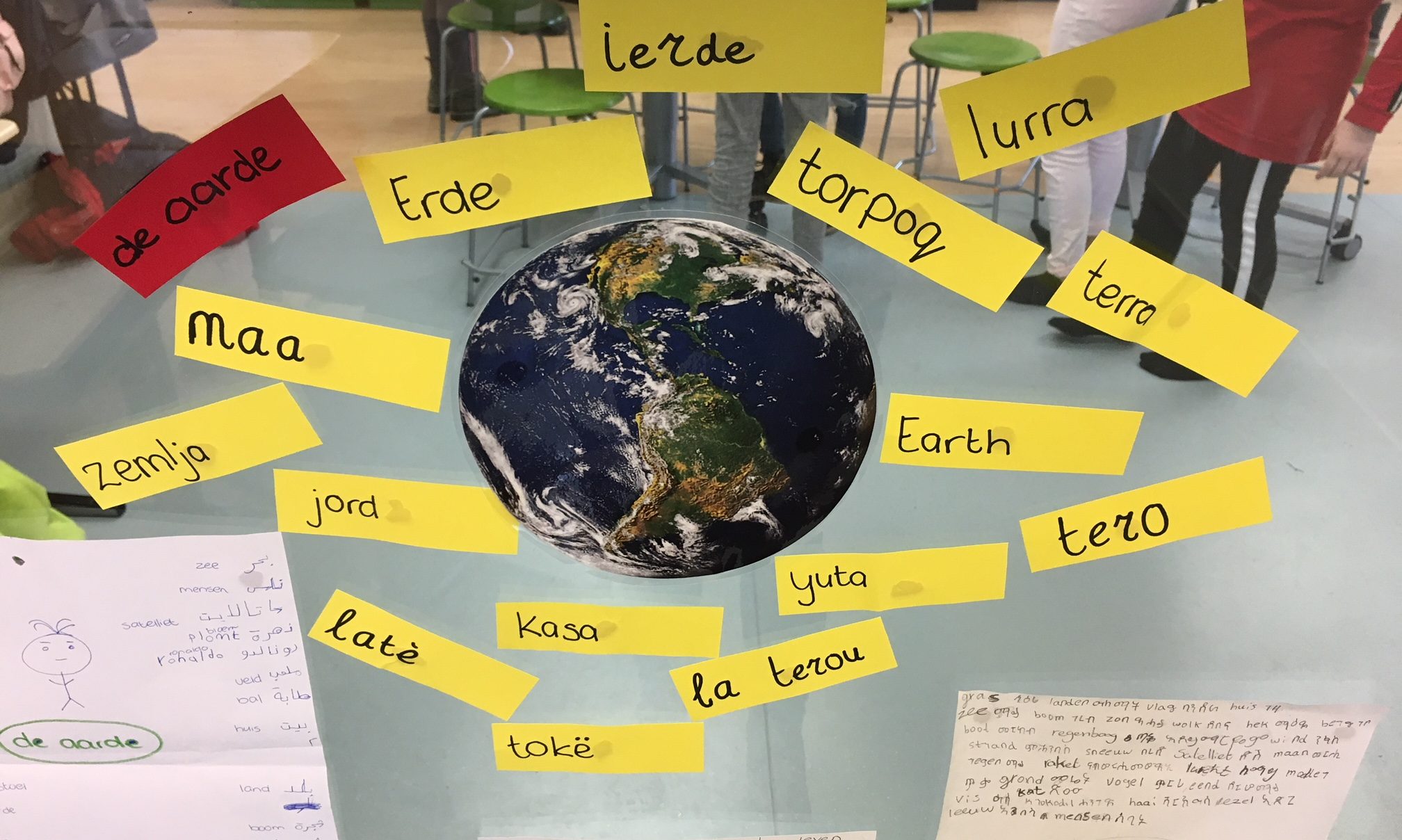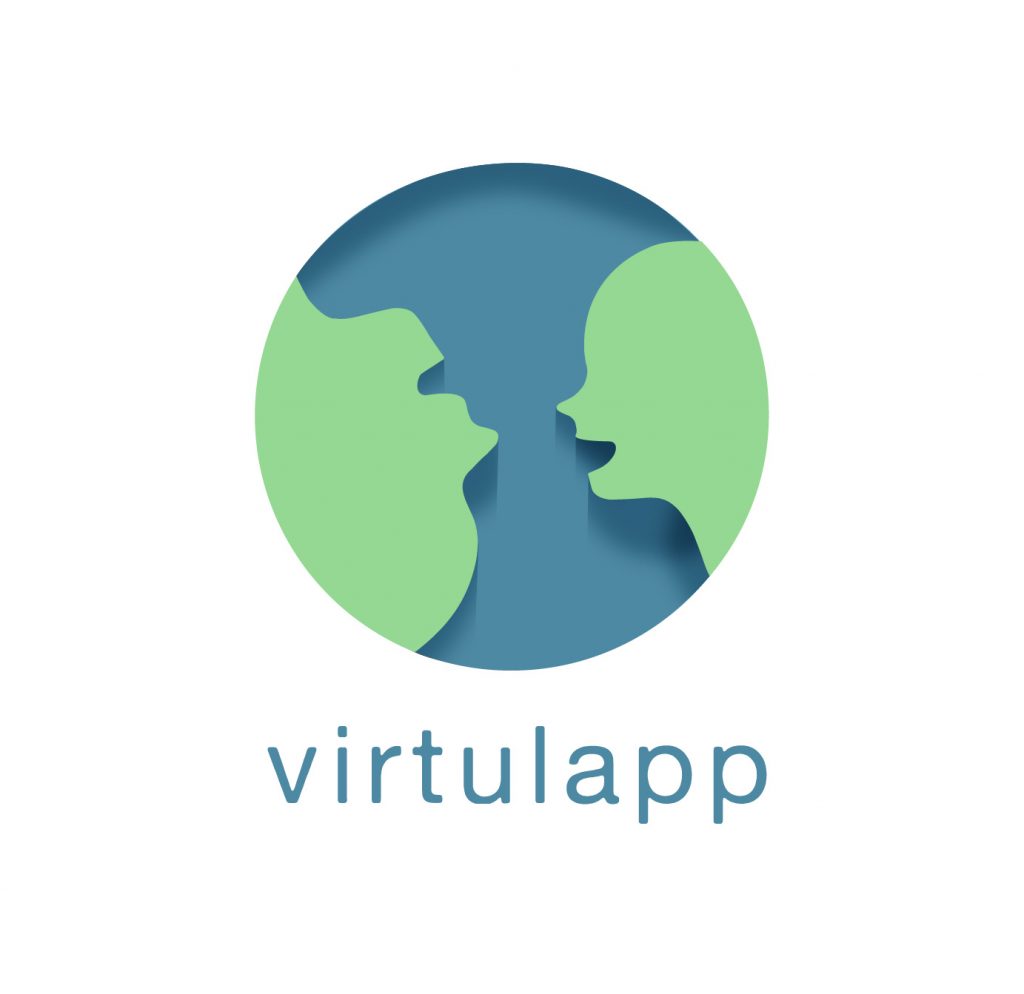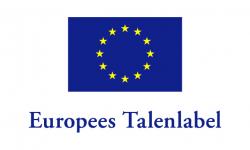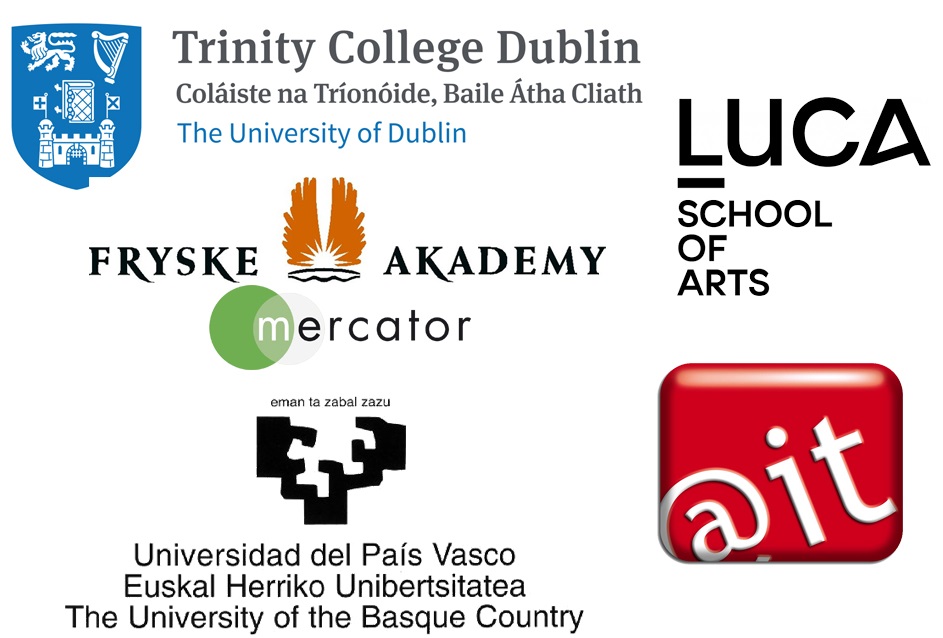A 3-year Erasmus+ Key Action 2 Strategic Partnership project
Virtual Language App
has come to an end in December 2021.
Project results and products remain available on this website for you
The VirtuLApp (Virtual Language App) project group addresses the needs of teachers concerning multilingual education, and supports them to gain more knowledge about and tools for multilingual education, integration of migrant languages and less language separation. Therefore, VirtuLApp has developed an innovative multididactic approach which teachers can use in the classroom in any situation, by providing knowledge on multilingual didactics, application of that knowledge and tools to use in the classroom.
The project is coordinated by the Mercator European Research Centre, hosted at the Fryske Akademy in Leeuwarden, The Netherlands. Other partners working at the project are ATiT (Belgium), Trinity College Dublin (Ireland), University of the Basque Country (Spain) and LUCA School of Arts (Belgium).



Latest News
VirtuLApp products available
The VirtuLApp project ran until 31 December 2021, and therefore, this website will no longer share news and new items. All project results and products remain available on this website[…]
Read moreBabelAR in museum exhibition
You can see BabelAR in the exhibition at Bozar in Brussels, from February to April!In a special exhibition you can discover all of the winners of the Henry van de[…]
Read moreVirtuLApp wins prize European Language Label!
We are thrilled that VirtuLApp has won the second prize in the European Language Label/ Europees Talenlabel 2021, the Netherlands! The European Language Label The European Language Label is an[…]
Read moreThe children in my classroom speak a lot of different languages. How can I use all languages in the lessons and prevent that it takes too much time?
How can I motivate my colleagues to also use multiple languages in the classroom?
I really want to create a multilingual classroom, but how can I do that when I am not proficient in all languages? How can I give the ‘expert-role’ to the pupils themselves?






